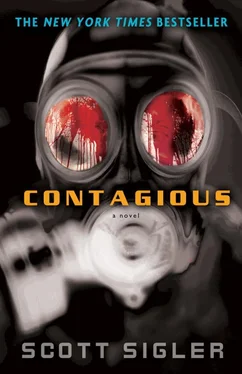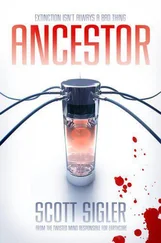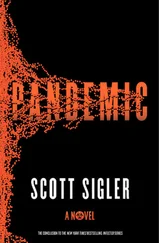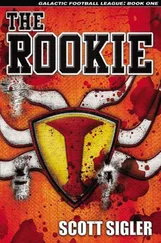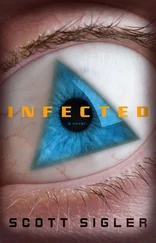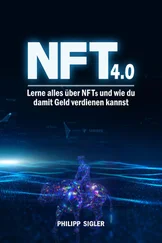• • •
Perry nodded. Don’tdie on me. That’s all he was to these people, an asset. A freak. He keyed into his room, shut the door, then fell on the bed. He dropped his beer. It spilled on the carpet. That was okay, he had two more. He rolled to his back and stared at the ceiling. It was spinning pretty good. Without looking away from the ceiling, he felt for another bottle, found it and twisted off the top. He upended it. Most of the beer splashed on his face or landed on the bed, but some of it went into his mouth, so it wasn’t all bad.
“I got some more, Bill,” Perry said. “I killed those motherfuckers.”
Bill didn’t answer. He never answered direct questions. He just piped up unexpectedly from time to time, told Perry to get a gun, to kill himself.
Bill . Why the fuck did Margo have to bring him up? Perry drank to forget Bill. Well, it didn’t work. Nothing Perry ever did worked. Except when he wanted to hurt someone. To kill someone. That worked every time.
What the fuck was Dew’s problem, anyway? Pretending to get all pissed about that family. Why didn’t Dew and the others understand? Those people weren’t human anymore. They were weak . They didn’t have discipline. That meant they needed to die. If one of them, any of them, was even trying to cut out the triangles, then Perry would let them live. Maybe. But it didn’t matter, because so far no one had fought.
No one but him.
Why? Why was he special? He knew why: because his drunken, fucked-up, wife-and child-beating father had toughened him up with a strap.
Perry set the beer bottle on the bed to the right side of his face. He tipped it—this time more made it into his mouth than onto the bed. His face was all wet and sticky.
He didn’t feel a thing for the infected. Not a thing. That freakin’ toddler had rushed him, for crying out loud. They weren’t just infected, they were stupid .
That was the last thought to go through Perry’s mind before he passed out for the second time that night.
THE BACKYARD OF CHUY RODRIGUEZ
Chuy Rodriguez lived at the corner of Hammerschmidt and Sarah streets in South Bend, Indiana. Chuy had a wife, Kiki, and two kids: John, sixteen, and Lola, fourteen.
In their backyard stood a sparsely leaved oak tree suffering from some kind of bark rot. The tree had another three years, maybe five, and Chuy was already dreading how barren his backyard would look when he had to cut it down.
Chuy’s tree, however, wasn’t really the point of concern. For that you had to look directly above the tree.
Some forty miles directly above it.
If you could look up there, even with a very high-powered telescope, you might not notice a little blur, like a tiny heat shimmer. That shimmer came from visible-light wavelengths hitting an object, sliding along its surface, then continuing on their way with almost their exact original trajectory.
This object wasn’t truly invisible. Were it some massive thing taking up half the horizon, everyone would have spotted it by now.
Since it was just a bit bigger than a beer keg, however, no one noticed.
This object was inanimate. Cold. Calculating. It had no emotions. If it did, when it felt the Marinesco gate vanish in a ground-rending explosion, it probably would have said, Awww FUCK, not again .
The object’s shape had once been quite smooth and polished, like a teardrop with a point on both ends instead of just one. But that had been at launch, before the long journey that brought it into a geostationary orbit above Chuy Rodriguez’s diseased oak tree.
Space isn’t really empty. It’s got stuff in it. Stuff like dirt, rocks, ice, various bits and pieces—only those pieces are spread really, really far apart. If you travel far enough through that not-so-empty space, you’re going to run into that stuff. Depending on how fast you’re going, hitting even a teeny speck of dust can cause quite a bit of damage. The double-teardrop rock had been engineered to take that damage and keep on flying. The engineering worked, mostly, but the object’s pitted and cracked exterior bore witness to a design adage true anywhere in the universe—you can’t test for everything.
It had come so close to completing the mission. Once again, however, stopped before the gate could open… once again, stopped by the rogue host.
Stopped by the sonofabitch .
Its mission was simple in concept. Travel straight out from the home planet and search for signals that indicated sentient life. Space, as mentioned before, is big. Searching space for a suitable planet would require an investment far greater even than the economy-breaking project that had launched this object so long ago. There was one way, however, to narrow the search for planets that sustain life—find planets that already have it.
It did that by tracking broadcast signals.
Broadcast signals meant several things. First, they meant a planet that could support advanced biological life—predictable ranges of gravity, density, temperature, gases and liquids. Second, broadcasts meant a predictable range of resources—odds were, a planet of nothing but silica and sulfur could not create technology capable of sending signals into space. Finally, and perhaps most important, broadcasts indicated a large population capable of performing technically advanced tasks.
And that was important when you wanted slave labor to build your colonies for you.
Colonies, like exploration, are prohibitively expensive operations. Enslaving a native population provides a low-cost solution. It also helps cut off a potential interstellar rival.
If all went well, if the planet had suitable gravity and atmosphere, the object could get cracking. It would seed the planet with machines that could build a portal, a portal that connected two places so far apart that no living thing, nor the children of that living thing, nor the great-greMargaret, Amos and Clarence sat in the MargoMobile’s at-great-grandchildren of that living thing, could survive the trip by any other means. With the portal, however, such a trip took place instantly. Hundreds of light-years traversed in the blink of an eye.
This object, this Orbital, had arrived in Earth’s solar system some twenty years ago after detecting multiple signals: radio, television, microwaves. It approached slowly, cautiously, because there was always the possibility sentient life was too advanced and would see it coming. So the Orbital watched for a few years. It analyzed, eventually reaching the conclusion it could move into a low, stationary orbit without being detected.
Once the Orbital drew to the operating range, it spent more years watching. While there were multiple shapes and forms in the signals, the dominant species was almost always present. Suffice it to say that thanks to repeated image analysis, the Orbital knew a human when it saw one.
After seven years the Orbital knew humanity’s technological capabilities. It could identify major population centers and, more significantly, areas of little or no population. It could not understand any languages, but it didn’t need to—it would accumulate language once the probes were successfully deployed.
The Orbital carried eighteen of the small, soda-can-size probes, each of which could cast over a billion tiny seeds adrift on the winds. Each seed contained two main elements. The first was the microscopic machinery needed to analyze potential hosts and hijack their biological processes. The second was a tiny, submicroscopic chunk of crystal. This chunk matched exactly with one in the center of every other seed and, more important, inside the Orbital. This irreplaceable, unreproducible chunk was the template, the device that reshaped the molecular structure of biomass so that it became the material needed to build a gate.
Читать дальше
